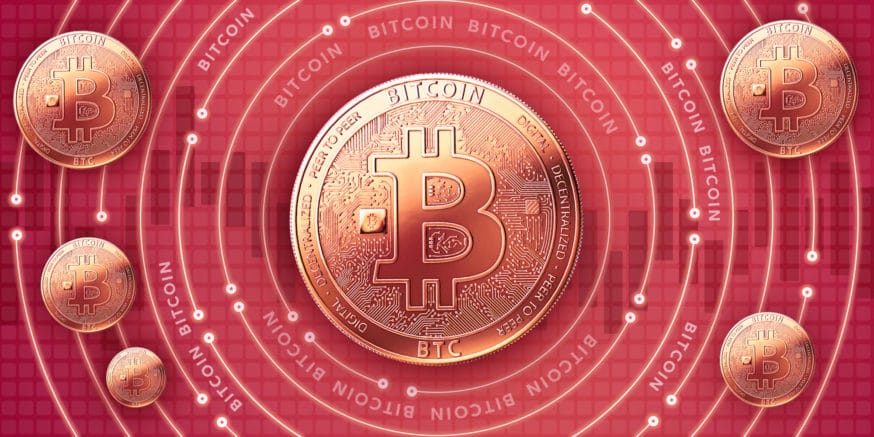The Bitcoin.com Wallet allows you to safely store and spend your Bitcoin and Bitcoin Cash, along with other crypto assets. Text me the app. Already have a wallet? Buy Bitcoin instantly. Buy both Bitcoin Cash (BCH) and Bitcoin (BTC) now using a credit or debit card. I want to spend. If you incur an unexpected need for more money, withdraw more cryptocoins as cash from a Bitcoin ATM or transfer cryptocoins to a debit card or your bank account.
For centuries, traditional banks have been controlling the global financial landscape. They hold power to people’s finances, and they have made a profit from such power, as much as they can. Bitcoin was created to change the dynamics and ensure that people are in control of their finances.
With Bitcoin comes decentralization, lower transaction fees, faster cross-border transactions, and the elimination of third-party companies in the banking operation. Bitcoin, as an innovation, has disrupted the financial trend, and it is no surprise that the traditional banks and a few other institutions are fighting against it. As a cryptocurrency enthusiast, you have to be careful when withdrawing your funds to ensure that you don’t lose your account.
Banks hate Bitcoin

In the traditional financial landscape, a middleman is appointed to settle transactions. For centuries, banks have been the appointed middlemen. They ensure that transactions between two or more parties are executed, and in the process, charge fee for it.

The banks usually charge exorbitant fees to settle transactions, especially the cross-border transactions. The emergence of Bitcoin threatens them because Bitcoin and other cryptocurrency operate in a decentralized manner, allowing people to transfer funds almost instantly with meager transaction fees.
Although the crypto space is yet to attain a substantial market value (in relation to banks), it poses a threat to the banks and the vast amount they make via transaction fees. Banks also charge other expenses such as account maintenance fees, and more. With Bitcoin, all these charges are non-existent.
The 2008 financial crisis further highlighted that your money doesn’t belong to you once you deposit it in a bank. Banks use your funds to support other businesses, making a profit in the process. Millions of people lost their life savings because banks lost funds when the economy crashed.
The financial crisis made it necessary for people to be in total control of their wealth, and Bitcoin was developed to serve that purpose. So the fact that Bitcoin allows people to store and be in complete control of their funds is something that banks frown upon.
Banks take action against Bitcoin
Some banks have been calling for sanctions against Bitcoin. Banks such as JPMorgan Chase and more prohibit their staff from dealing with cryptocurrencies and blocking Bitcoin purchase via their debit and credit cards.
With the sanctions on Bitcoin purchase by some banks, you might have to be careful when cashing out Bitcoin to your primary bank account. Cryptocurrency platforms that support fiat currencies allow users to withdraw their BTC funds to their bank accounts.
If banks realize that you are dealing with Bitcoin, you might lose your account. To ensure that doesn’t happen, it is safer to use another bank account for your Bitcoin and crypto transactions. It is even better to choose a bank that doesn’t have stringent rules regarding Bitcoin. Once you make your withdrawals to that account, you can transfer your funds to your primary bank account.
It is also recommended that you transfer funds from your main account to the secondary account before purchasing Bitcoin. That way, your main bank account doesn’t get involved with Bitcoin transactions, and you don’t lose it as a result.
Alternatively, you could use a bitcoin debit card or a bitcoin friendly EMI to cash out small or moderate amounts of bitcoin.
How To Cash In Bitcoin
Conclusion
Despite the crypto space’s increased awareness and recognition, banks are yet to take a soft stance on Bitcoin. Thus, it is advisable to take precautionary actions when withdrawing BTC to your main bank accounts to ensure that the bank doesn’t close your account.
How To Convert Bitcoin Into Dollars
Sources: https://www.investopedia.com/articles/forex/042015/why-governments-are-afraid-bitcoin.asp